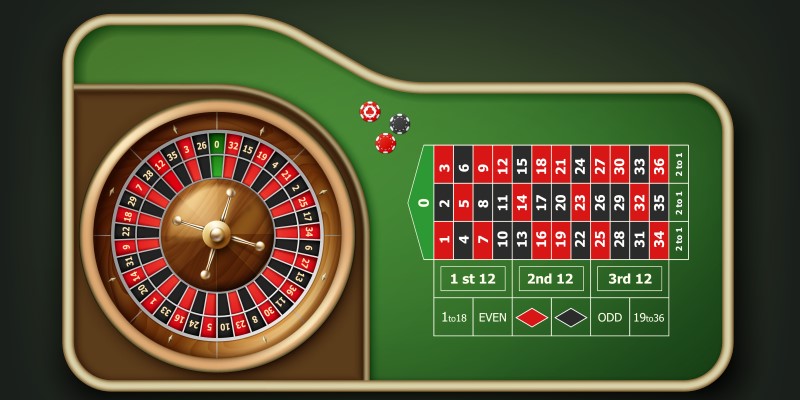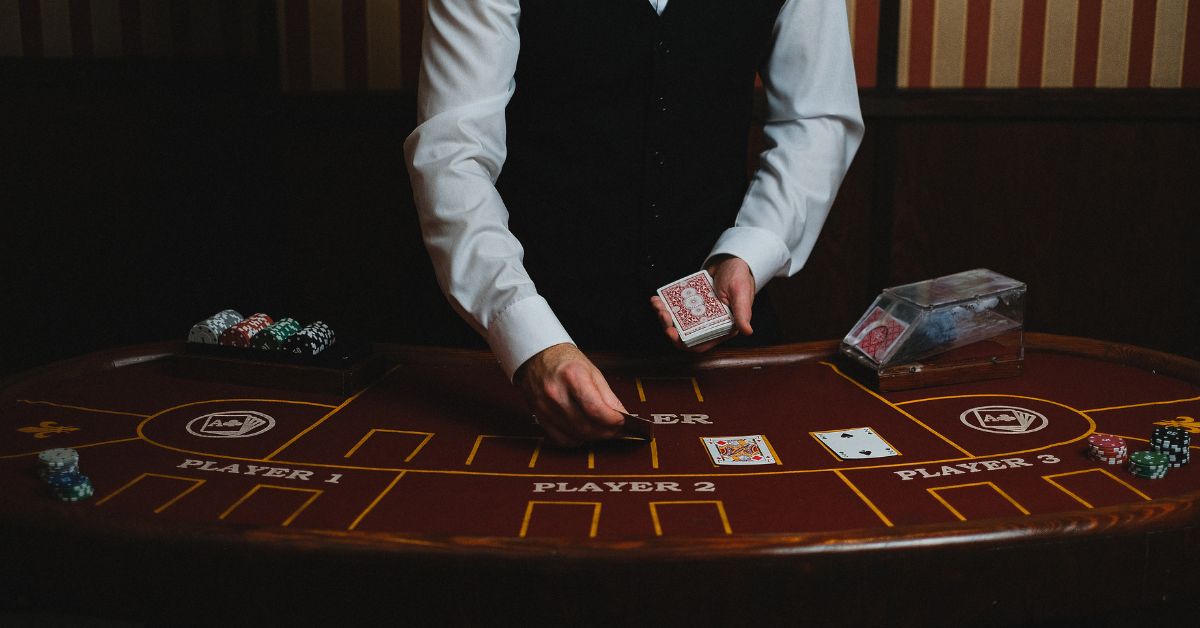Gambling Gods in Different Religions
Gambling has been a favorite activity for many people since the dawn of civilization. People have little issue establishing superstitious beliefs to aid their chances of winning, from simple dice games to Poker.
This article discusses the gambling gods in different religions and their manifestations worldwide. So read on to find out more.
Gambling Gods in Different Religions

Lady Luck may be a charming friend or a seductive temptress. Depending on your perspective and circumstances, a gaming experience might be a nightmare or a lovely dream. But does it ever feel like there's a supernatural power at work?
When most people think of religion and gambling, they immediately think, "Please, God. Allow me to win this jackpot." And it would undoubtedly appear to be a divine gift if the six numbers you chose helped you win hundreds of millions of dollars.
Now, we are discussing the gambling gods in different regions. They are referred to as tricksters and miscreants for a reason. Every god or goddess of gaming, ancient, bygone, and modern, seems to portray some type of humorous malevolence. Although men and women appear to be rolling dice against the fates, your ordinary gambling deity likes to play chess.
Today we look at deities who identify as gambling gods or have come to be viewed as such due to flaws in their personalities. Many gamblers place their hopes in the ancient sovereigns, but is it worth the risk?
We examine the known tales about gambling gods and what has led people to believe they may leave their fate to them.
Who Could Help You Win? Top Gambling Gods in Different Regions?
Karma is widely accepted in most systems of thinking. So, the next time you're at a casino with a lot of Greek, Egyptian, or Hindu-themed slot machines, take a moment to consider how the next big winner may be praying to one of these below gods for luck and wealth. Let's talk about them now.
The Greek God of Gambling | Hermes
There's a lot of scholarly knowledge about Greek mythology. Hermes is presented in the Iliad as a counselor to a Trojan king, but he aids the Achaeans in the Trojan War. After all, he is well-known as a prankster.
Hermes

Hermes was the son of Zeus and Maia. He is the god of trade, heralds, merchants, business, highways, thieves, deception, sports, travelers, and athletes. He is referred to as the gods' ambassador and messenger.
Gambling is an essential feature of Greek mythology and history. Legend says that Cronus' sons, Zeus, Poseidon, and Hades, divided the three worlds by rolling dice. Zeus rolled the highest and picked first, Poseidon came in second, and Hades had to make the final decision because he had the lowest score.
Furthermore, Hermes, the Greek deity of gaming, was worshipped. He is more renowned for his other responsibilities. Hermes, in particular, is the messenger of the Olympian gods, which implies he may travel between the mortal and heavenly realms. He also guides the dead's souls to the underworld.
Hermes, despite his challenging tasks, was also a celestial prankster. His cleverness was legendary; many claimed he could outwit even the Olympian gods. Furthermore, he employed deception to carry out his nefarious schemes. Nonetheless, the ancient Greeks prayed to Hermes for good fortune since they thought Hermes invented the dice.
The Hindu Goddess of Gambling | Lakshmi
The female figure is essential in Indian culture. Thus, it seems only fitting that the Indian gambling deity is a lady! Unlike her Greek counterpart, Lakshmi likes to be benevolent rather than malicious. However, like with any other celestial entity, her fury is volatile, so you should try to stay on her good side.
Lakshmi
Lakshmi is the Hindu goddess of fortune, riches, and success and the wife of the deity Vishnu. She can bring prosperity and money, but she despises the greediness that these things generate.
She was in charge of defending the earth from demons with the god of battle, Indra. Indra grew overconfident since he believed they couldn't compete with Lakshmi and his powers.

She stood back when his pride turned arrogance, leaving him alone to battle. The demons acquired strength and took control after more than 1,000 years of poor luck for the other gods. Indra requested assistance and was assigned the responsibility of churning the sea with the other gods.
Legend has it that she was happy with her task after another 1,000 years of struggle. The account is intended to demonstrate that she only answers the pleas of those who sincerely need her assistance. She is currently mostly commemorated on Diwali or the Festival of Lights.
Many worshipers gamble after the celebration, believing their devotion to her has led her to shower them with good fortune.
The Egyptian God of Gambling | Thoth
Egypt was an unrivaled society in terms of cultural development at its pinnacle. Its dominion stretched far and wide, its wealth was the world's envy, and its fateful brush with the Romans was when everything went wrong. On the other hand, the Ancient Egyptians had their own deity of gambling and good luck, Thoth.
Thoth
Egypt's culture is one of those magnificent civilizations cloaked in mystery. The complexities of the Old Egyptian language have resulted in countless anecdotal interpretations, but one thing is very specific: gods in Egyptian legend had several responsibilities, just as anywhere else.
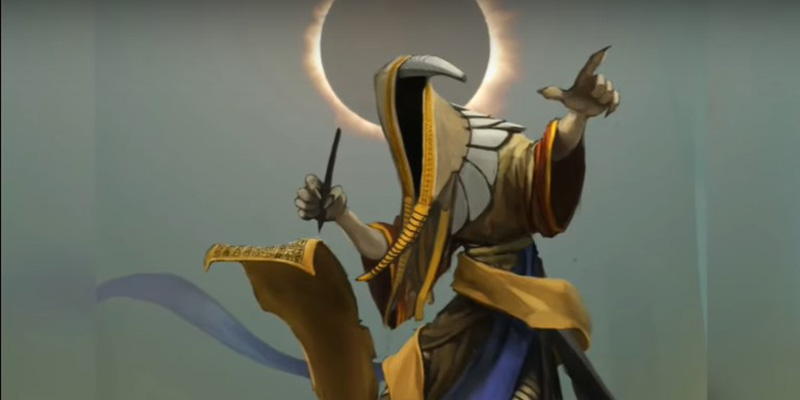
Thoth, a god, most frequently linked with the moon, learning, writing, and advising others, was also given some of the characteristics of a god of gambling. Thoth appears to have obtained this title not because of any particular interest on his side but rather out of a desire to assist others.
Interestingly, the Greeks immediately saw the parallels between Hermes and Thoth, complimenting the Egyptians for their deity worship. However, unlike Hermes, Thoth was a gentler divinity with no desire to disturb people's fortunes.
The Aztec God of Gambling | Macuilxochitl
The Aztecs were not especially friendly people. They were a close-knit group, though, hostile to outsiders and excited at the prospect of gaining the favor of those above requiring the odd pound of flesh. Despite their bloodthirstiness, the Aztecs created an astounding number of deities, including Macuilxochitl, the deity of gaming.
Macuilxochitl
Macuilxochitl is little known, and the first thing you'll notice about him is that his name translates as "Five Flower." This is a reasonably peaceful name in a society known for various terrifying customs.
According to what we know about Five Flower, he was a busy god, not just of gambling but also of excess, art, and games. Although mankind's fortunes altered, Macuilxochitl remained. He was initially revered by the Teotihuacan, but the civilization fell apart, leaving behind a stunning and majestic legacy, including the Pyramid of the Moon.
Seeing the Teotihuacan's success, the Aztecs rushed to take their gods and claim similar genealogy with them, not to mention paying respect to Macuilxochitl, the gaming deity.
He also had a personality and frequently exacted vengeance on persons he despised for no apparent reason. On the other hand, his harshness fit nicely into the Aztec worldview, and the deity was praised for years.
The “Five Flower” god is said to be the personification of the perils that come with overindulging in pleasures. This deity is the most merciless of the gambling gods, teaching people that there is a time and a place to have pleasure and indulge and harshly punishing those who overindulge.
The Chinese God of Gambling | Nezha
Chinese culture is nearly 3,000 years old, making it a global historic site. Throughout its lengthy history, the region has inspired various tales and myths, one of which is Nezha, the Chinese deity of gambling and fortune.
Nezha
Nezha's origin story is fascinating. Nezha, the deity of gambling, is associated with life's difficulties and has suffered a semi-tragic fate. He understands sadness because he has experienced failure.
According to Fengshen Yanyi, the Jade Emperor sent Nezha to his mother, Lady Yin, during the Shang dynasty's reign. His mother carried him to the term for over three years, and when he was delivered, he was a ball of flesh.
On the other hand, his father was confident he was a demon and attempted to kill him. His father was a failure, and when he was born, he was a walking and talking youngster rather than a baby. Nezha committed himself after learning of a threat to flood Chentang Pass to rescue his family and the region's inhabitants. His mother erected a shrine for his soul's repose, which prospered because he bestowed miraculous healing on the ill and afflicted.
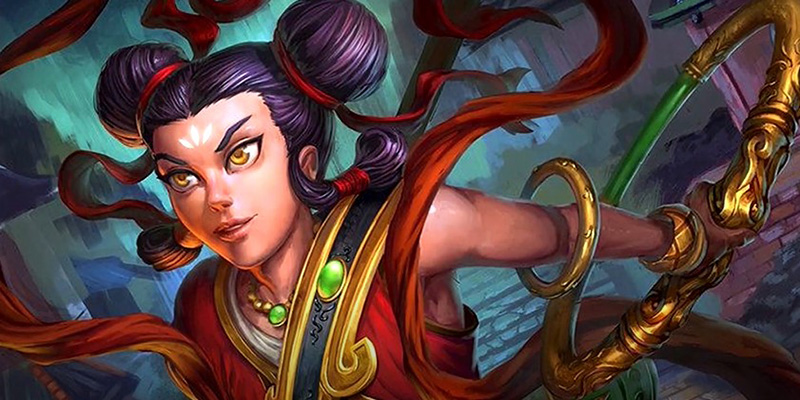
Nezha had a personality befitting a god of gambling, and he was frequently in trouble. He did, however, murder the son of Ao Guang, the East Sea Dragon King, on one of those occasions. Nezha, humiliated, attempted suicide and succeeded, but he was resurrected by Taiyi Zhenren, his teacher who had become fond of the youngster.
After his father's events, he returned to life to begin his journey as a demon-slaying hero. Years later, he traveled to paradise to reap the benefits of his good works.
According to legend, he was summoned to assist in lotteries and gambling. He is said to be the only Chinese god naughty enough to divulge winning lottery numbers.
Just as Nezha was frequently in difficulties, gamblers found a cause to idolize him, maybe in response to their misfortunes.
The Japanese God of Gambling | Kangiten
Gambling is essential in Japanese society and was formerly seen as a method to gain social rank. If you want to know mỏe about this, refer to the god who rules over games of chance in Japan, Kangiten, the deity of gambling.
Kangiten
Kangiten held enormous strength as befitting a heavenly deity. Above all, he was a guardian worshiped by everybody who took a chance on life, including performers, geishas, and gamblers.
In a nutshell, he was a deity to those in the "industry of pleasure," as one source puts it. Kangiten, like the other gambling gods, had a volatile nature in Japanese mythology, being impatient and prone to outbursts.
Kangiten is less well-known for his sponsorship of the fine arts, even though 243 shrines have been established in his honor. The most important temple was constructed atop Mount Ikoma, which was mainly unknown until the 17th century.
The Slavic God of Gambling | Dazhbog
Because the Slavic people were among the first to embrace Christianity and abandon the ancient gods, their lore isn't explored in great depth or glorified as much. Nonetheless, the Slavic people had numerous gods, more than the Greeks and Romans, and one of them was a gambling deity.
Dazhbog
Dazhbog is the Slavic deity of wealth, generosity, prosperity, and light. He is one of the lore's first and most potent deities and one of the first to be forgotten. Nonetheless, his popularity spread far and wide, and his importance in the pantheon is significant.
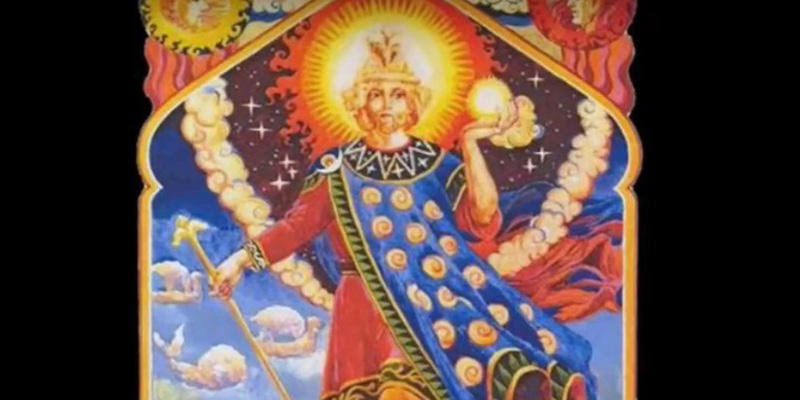
Although the Slavic people were not known to be gamblers, they tended to bank a lot of their hopes on Dazhbog when seeking prosperity in life, so his name came to mean "provider of money." Stritbog, or the distributor of wealth, is another name for the god.
The Nordic Goddess of Gambling | Geifon
Nordic Mythology is one of the most well-known in the world. The Nordic pantheon's gods are seen as unscrupulous heavenly entities that spurred the Nordic people to tremendous accomplishments in combat and civilizational growth. And, indeed, there is a gambling god or goddess!
Geifon
For millennia, the Scandinavian people worshiped the Norse gods who lived in Asgard, the gods' home. Norse mythology has grown in popularity in recent years all across the world. Most of us have heard of Odin, Loki, and Thor, but few have heard of Gefion, the Norse god of gambling.
She is revered as the goddess of gambling, plowing, fertility, and good fortune. Unfortunately, we don't know much about her because there isn't much documentation mentioning Gefion. Some say she was a virgin, and everyone who dies as one becomes her attendant.
Remember that Gefion is kind to those seeking good fortune, but she is also someone you don't want to offend. The Poetic Edda is one of the rare works in which the goddess of gaming appears. It narrated the narrative of Loki tricking her as a child and incurring the anger of Gefion - she who sees all fates, even Odin's.
Native American Gods of Gambling | Nohoilpi
While the phrase "Native American" is used broadly, it is crucial to recognize that there are multiple tribes, each with its own beliefs that may not necessarily agree. As a result, today, we will focus on one specific deity, Nohoilpi, the Navajo gambling god.
Nohoilpi
Nohoilpi is the most authentic deity of the chance of all the gambling gods we've discussed. He was worshiped for being created to teach humans about gambling games.
Nohoilpi, often known as "the Great Gambler," is the son of Tsohanoai, the sun deity in the nation's mythology. When Nohoilpi first arrived on Earth, he taught humanity how to play and introduced them to various gambling games.
He was a little devious and vanquished people by indebting them and demanding that they return their debt by creating a city to pay tribute to him. According to legend, the other gods were envious of Nohoilpi and granted a tribe member with remarkable intelligence and foresight, sending him to face Nohoilpi and driving him away.
The man succeeded, guided by other deities, and returned Nohoilpi to the sky, but his legacy lives on to this day throughout North America! Nohoilpi used to wear a turquoise talisman, so if you're searching for a fortunate charm suitable for a deity, this is an excellent place to start.
Conclusion
Every ancient society had its kind of gaming. Games of chance have evolved with the advancement of humanity. Today, we have sophisticated slots and online Poker games, but one thing hasn't changed: people's gambling superstitions. Hopefully, the gods of gambling have provided you with some insight into ancient people's and civilizations' superstitions.









